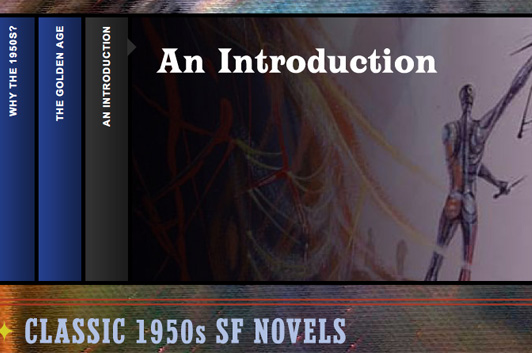Whatcha Reading, Alice Albinia?
What are the great books about Britain, the books that British people would recommend if you wanted to understand them and their nation better? When I interviewed Alice Albinia earlier in 2012, and we got to talking about what she’d been reading lately, she mentioned that she’d been giving that question a lot of thought—and solicited a lot of input, too.
Some of the books that came up: W.G. Sebald’s The Rings of Saturn, Jonathan Coe’s What a Carve Up! (also known as The Winshaw Legacy in America), David Kynaston’s Austerity Britain and Family Britain, and Norman Davies’ Vanished Kingdoms—that last book isn’t coming out in the U.S. until later this year, and its subtitle has been changed from “The History of Half-Forgotten Europe,” which is how she knew it, to “The Rise and Fall of States and Nations,” which is certainly more concrete but honestly doesn’t sound anywhere near as exciting.
For a change of pace, Albinia also mentioned that she’d liked Nicole Krauss’s Great House.
You could consider this short video clip another sneak preview of Beatrice #2. In addition to talking with Albinia about her debut novel, Leela’s Book, I’ve also got interviews with Nick Dybek and Jodi Picoult, with a total of approximately 10 minutes of video footage from those conversations, too! The enhanced ebook is almost complete, so you should be seeing it before too long… You can keep checking the Beatrice ebook listings, or just subscribe to the mailing list if you want to know as soon as it’s ready…
25 July 2012 | whatcha reading |
Read This: American Science Fiction

Library of America
People are always talking about having been born so many years too soon or too many years too late, but I think that when it comes to science fiction fandom, I was born at just the right time. As a teenager in the 1980s, I only had about a half-century of reading to catch up on, give or take—yes, yes, plus a few major precursors—and I had a well-stocked public library, a speedy reading eye, and plenty of free time. The early boom years of SF were still close enough that much of that material was still in print, so what my library didn’t have, I could track down and buy. So I did a reasonably decent job of staying up to date with “the good stuff” that decade, at least as far as hard SF was concerned, but I was also able to make a pretty good dent in the 1950s and 1960s, too. Although there were gaps…
That’s one of the reasons I’m excited about the arrival of American Science Fiction: Nine Classic SF Novels of the 1950s, a new boxed set from the Library of America. I’m finally going to get to read Fritz Leiber’s The Big Time! Plus, I suspect I’m going to understand Theodore Sturgeon’s More Than Human a lot better than I did when I was 15. (I’ve already started in on The Space Merchants by Frederick Pohl and C.M. Kornbluth, which is a bit funnier with Mad Men-colored retrospective, but I do remember finding it pretty funny—finding a lot of Kornbluth funny, for that matter—in high school.)
As with any attempt to do a “big picture” sampling like this collection, I’ve got a few items left on my wish list, The Languages of Pao by Jack Vance chief among them. Oh, okay, I’ve got a soft spot for Fredric Brown’s Martians, Go Home, too. And though I’m not too frustrated by its absence, I know a lot of other SF fans will mark the omission of Walter Miller, Jr.’s A Canticle for Leibowitz—actually, there seems to be some question about that. The Library of America’s 1950s timeline puts the publication of Canticle at October 1959, while Wikipedia says it was published in 1960 (but with a 1959 copyright). So maybe it’ll be in the 1960s batch!
Wait, you’d probably like to hear more about that timeline, right? It’s part of an elaborate website the Library of America has created as a sort of critical apparatus to go with the books. So you get not just, for example, William Gibson talking about Alfred Bester’s The Stars My Destination or Neil Gaiman discussing The Big Time, you also get an autobiographical essay by Bester and an introductory essay from Leiber plus five additional short stories set in his “Change War” series. And a bunch of other stuff besides. As supplementary websites go, this is pretty sweet.
24 July 2012 | read this |

 Our Endless and Proper Work is my new book with Belt Publishing about starting (and sticking to) a productive writing practice.
Our Endless and Proper Work is my new book with Belt Publishing about starting (and sticking to) a productive writing practice. 
